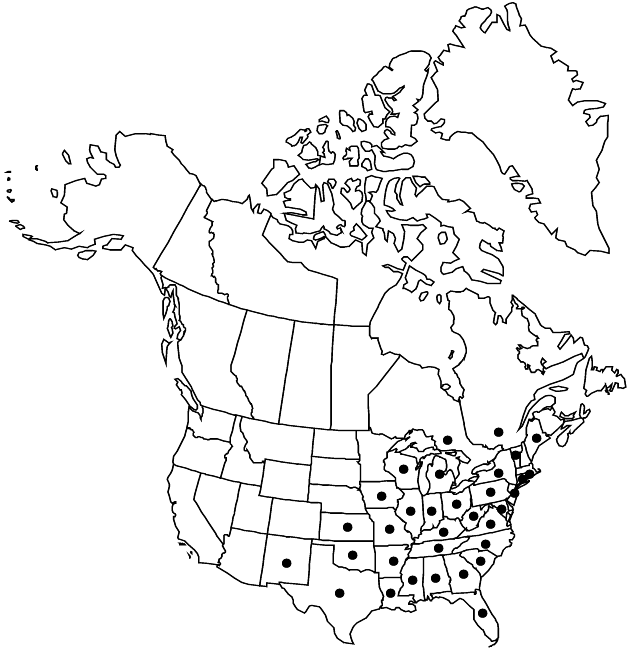Difference between revisions of "Coreopsis grandiflora"
Brit. Fl. Gard. 2: plate 175. 1826.
FNA>Volume Importer |
FNA>Volume Importer |
(No difference)
| |
Revision as of 18:48, 24 September 2019
Perennials, 40–60+ cm. Aerial nodes proximal to first peduncle usually 6–10+, distalmost 1–3 internodes 4–7+ cm. Leaves: mostly cauline on proximal 2/3–7/8 of plant heights; petioles 0 or 10–35+ mm; blades usually 1(–2)-irregularly pinnately or ± pedately lobed with (3–)5–9+ lobes, rarely simple, simple blades or terminal lobes narrowly lanceolate to linear or filiform, 15–45(–90+) × (0.5–)2–8(–12+) mm. Peduncles 8–15(–25+) cm. Calyculi of lanceolate to linear bractlets 3.5–9+ mm. Phyllaries lance-ovate, 7–9(–12) mm. Ray laminae yellow, 12–25+ mm. Disc corollas 3.3–4.8 mm, apices yellow. Cypselae 2–3+ mm, wings spreading, ± chartaceous, entire or irregularly toothed to pectinate. 2n = 26 (+ 0–2B).
Phenology: Flowering May–Aug.
Habitat: Sandy soils, ditches and roadsides, other disturbed sites, granite and sandstone outcrops
Elevation: 30–300+ m
Distribution

Ont., Que., Ala., Ark., Conn., Fla., Ga., Ill., Ind., Iowa, Kans., Ky., La., Maine, Md., Mich., Miss., Mo., N.J., N.Mex., N.Y., N.C., Ohio, Okla., Pa., R.I., S.C., Tenn., Tex., Vt., Va., W.Va., Wis.
Discussion
Coreopsis grandiflora var. inclinata J. R. Allison from glades in Alabama may merit recognition.
Selected References
None.